|
It was such a pleasure to spend time with so many of you at Harvest Fest on Saturday. From the feedback I heard, it was pretty much the best Harvest Fest on record!
Last week in Upper El, after sharing our history stories and completing the first project of the school year, we turned our history studies eastward toward Europe. We are only taking a brief respite from North America in order to prepare the stage for the Age of Exploration. Last week, we looked at the cultural, religious and economic forces that propelled the Europeans across the Atlantic. This week, we will look at the advances in shipbuilding that made transoceanic travel reliable. Towards the end of this week, I will introduce the second history project of the school: a team-based project to build a timeline of explorers. Throughout our studies, we will continue to connect the arrival of the Europeans with the impact to the indigenous peoples. This is a complex year of history work for us, but I can see that the Turquesa students are hungry and curious and unstoppable! In science last week, we began an energetic study of fungi with a great Ted Ed video (see the link below - we watched until 3:51) and an hour-long fungi hunt on the hillside behind our building. We were so dirty and so excited to see the incredible variety of fungi! We brought many carefully extracted samples into the classroom to examine under microscopes and hand lenses. We also made a variety of spore prints. In essence, we covered the different parts of fungi and their functions, while also looking into reproduction. We will continue to delve into this life science work throughout the month. This week we are beginning sentence analysis lessons, continuing geometry work with both equivalence and the Pythagorean Theorem, and conducting mini-vocabulary investigations called Etymology Projects. In homework this week, every student has a lit book reading assignment and should be reading their Choice Book on a daily basis. Also, students with Wordly Wise should be completing the first half of Lesson 2. I hope you'll join me next Monday evening for a parent education night that is all about Upper Elementary Math! Please let me know if you have any questions. Thank you, Nicole P.S. Here's the link to the fungi video: http://ed.ted.com/featured/u5TXiYXi
0 Comments
We are settling into our post-IslandWood routines and the classroom is a busy place humming with lessons, projects and collaborations. We feel lucky to have the couch and library area as well so that down time and brain breaks are within easy reach. It is always our goal to help students stay motivated and purposeful about their choices, and sometimes that means relaxing with a good book. We’ve noticed that the couch is especially popular after lessons that involve new ideas and a lot of focus. I am happy to see people learning that self-regulation involves setting an effective pace and meeting their individual needs.
Every child starts at our morning Community Gathering, making a plan and setting their priorities for the day. Then they proceed through open class time, making decisions, asking for math lessons, making progress on projects, completing follow-up assignments and pursuing independent interests. Some students need help structuring this time, others need occasional check-ins from teachers, and others move efficiently through their decision-making. In our classroom, Mr. Robin and I work hard to make sure everyone is getting just the right amount of guidance to feed their sense of autonomy while also staying organized. History is one area in particular that gives students many opportunities to practice time- and project- management skills. In September, we were setting the stage for our exploration of North America with an intensive focus on the amazing array of independent tribal nations that have occupied the continent “since time immemorial.” We have been learning about tribal sovereignty and Native American culture areas, with stops along the way to experience story-telling, explore our own Coast Salish tribes and the idea of tribal homelands. Today we had a lesson about the importance of rivers and salmon to the Snoqualmie, Duwamish, Suquamish and the other Lushootseed tribes. We watched a series of amazing videos about the un-damming of the Elwha River in Olympic National Park. If you’d like to follow along, you can go to http://www.nps.gov/olym/learn/nature/restorationoftheelwha.htm. Currently, students are working on their first history project of the year. I designed this project, called the “Infinity of Nations Story-Telling Project,” to help children connect more deeply and personally with the richness of North America’s original nations. It will also help them experience leadership, develop presentation skills, and integrate their imaginations into science. Each child selected a traditional story from incredibly reliable collections compiled by Michael Caduto and Joseph Bruchac. Right now, students are learning their stories so that they can tell them to a small group of Morado students. They will follow their story-telling by giving a nature-based science lesson that integrates concepts from the story with current research. In order to incorporate arts and help children summarize their story-telling experiences, each student is designing a component of a mural that reflects their story/tribe/culture area. We will all paint the mural next week. If you’d like to help with the painting, please let me know. I’m sure it’s going to fun and messy! We will celebrate the mural and the end of the project week after next with a story-telling gathering. I really enjoyed spending time with you at Goal-Setting Conferences yesterday. Thank you for your time! Keep your eyes open for next week’s all-school newsletter. I’ve got a couple of key articles related to IslandWood and our upcoming curriculum night in it that I’m hoping you will enjoy. |
Ms. Nicole & Ms. AlyxEl Salon Turquesa Co-Lead Teachers Archives
May 2018
Categories |
|
Montessori Children's House
5003 218th Ave. NE Redmond, WA 98053 Phone: 425-868-7805 Fax: 425-502-6608 office@mchkids.com |
Founded in 1987
|

 RSS Feed
RSS Feed
